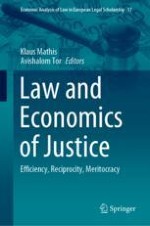2024 | OriginalPaper | Buchkapitel
16. Redefining a Normative Framework for Meritocracy in the Era of Generative AI: An Inter-Disciplinary Perspective
verfasst von : Kalpana Tyagi
Erschienen in: Law and Economics of Justice
Verlag: Springer Nature Switzerland
Aktivieren Sie unsere intelligente Suche, um passende Fachinhalte oder Patente zu finden.
Wählen Sie Textabschnitte aus um mit Künstlicher Intelligenz passenden Patente zu finden. powered by
Markieren Sie Textabschnitte, um KI-gestützt weitere passende Inhalte zu finden. powered by
